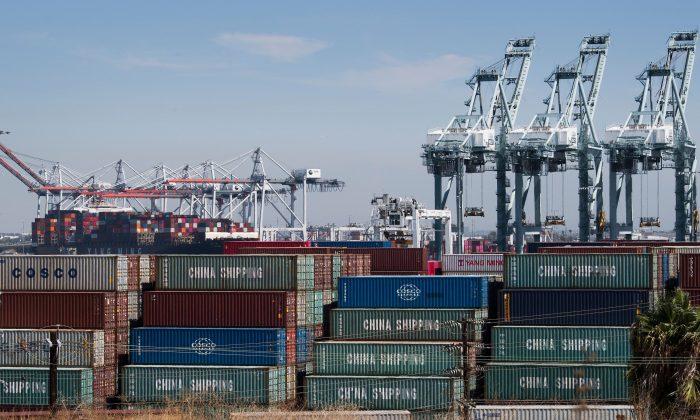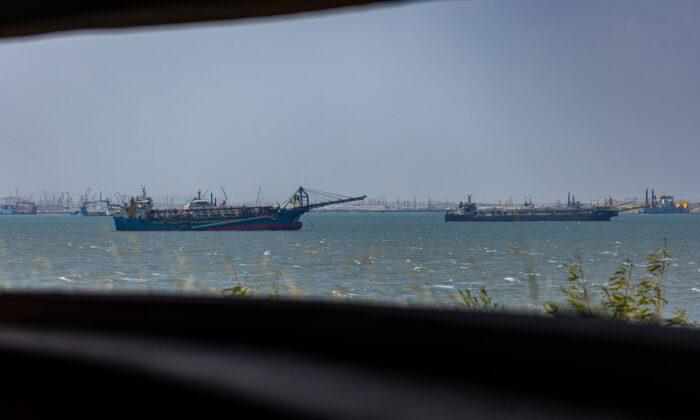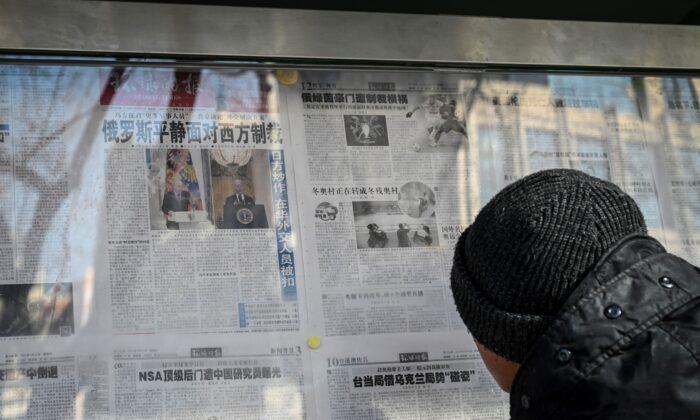Economists are worried about reports that the Trump administration’s consideration of rolling back tariffs in the U.S.-China trade negotiations. They claim tariff reduction will hurt domestic producers who are planning costly expansions based on continued tariffs.
U.S. manufacturers across the board are investing and hiring now, but these new opportunities “will get killed by Chinese subsidized goods if tariffs go away,” explained Michael Stumo, CEO and economist at Coalition for a Prosperous America (CPA), in an email to The Epoch Times.
The CPA has been a supporter of sustained tariffs. In a November 8 press release they stated: “CPA opposes tariff reduction with China and supports permanent tariffs on subsidized imports from China.”
The CPA is a nonprofit organization working for a new and positive U.S. trade policy that delivers prosperity and security to America. The organization claims that it is a coalition of manufacturing, agricultural, workers, consumers, and citizen interests working together to build a future America.
“We don’t have those [China] non-tariff barriers,” said Stumo, adding that China may reduce tariffs, but the Chinese government “have many other barriers and subsidies in place or available to create.”
The press release also stated that industries like defense, automotive, aerospace, and construction “finally found some relief from the massive flood of subsidized exports constantly streaming from China’s many state-owned enterprises.”
Ferry revealed that some $13 billion worth of major steel investment projects are now underway, and most of them are in small towns or semirural communities in Middle America. These are the regions that suffered depression after years of deindustrialization.
Stumo stated in the press release: “Our manufacturers have enthusiastically supported the Trump administration’s aggressive trade strategy. They would be left in a very troubling halfway position if the tariffs are reduced now.”
Ferry’s article also disclosed that in 2018, the major steel companies offered an average $94,252 annual compensation for employees. “High wages, as well as good benefit packages, are a trademark feature of the steel industry.”
CPA chair Dan DiMicco asserted in the press release: “Our members are making major investments, expanding operations, and hiring workers … If the tariffs are reduced, all of that new investment will be wasted.”
According to Ferry’s research, China produces 10 times as much steel as the U.S., with 55 percent of the world’s steel production. China also has additional excess capacity worth of 400 million tons a year. The steel products dumped from China has made the U.S. steel industry difficult to invest and maintain its production.
If the tariffs are rolled back, “we simply go back to the failed economic doctrine of pursuing ‘cheap goods’ at the expense of middleclass jobs and industrial stability,” DiMicco commented in the press release.
In a separate study by Ferry, it was also revealed that the tariffs on goods from China have not caused raising prices in the United States. His study found that “in most cases, consumers have not seen any increase in the prices of goods containing tariffed products because the costs have been absorbed by producers in the supply chain.”
U.S. core inflation has been pretty flat. Based on U.S. Bureau of Labor Statistics, the Consumer Price Index for All Urban Consumers (CPI-U) increased 1.7 percent for the year ending September 2019, which is the same increase as the 12 months ending in August 2019.
One of the studies done by CPA economists recently won the prestigious Edmund A. Mennis Award from the National Association for Business Economics. The study found that after five years the tariff would add a total of 948,000 jobs to the U.S. economy and $156 billion to U.S. annual GDP.
CPA, at the end of its press release, urged the Trump administration to continue its tariffs in order to revitalize critical job-creating sectors.





